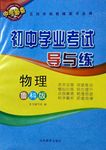题目内容
“The U.S.Food and Drug Administration(FDA)is considering to put stricter limits over tanning salons(晒黑廊)and wants to ban anyone younger than 18 years of age from using a tanning bed,”an advisory panel(专家团)announced last week.
The panel is calling for tighter controls on the industry such as requiring teenagers to get the approval from their pare nts before using tanning beds or limiting the use of artificial tanning to a certain age.“Given the absence of any demonstrated benefits,I think it is an obligation for us to ban artificial tanning for those under 18,”said panelist Dr.Michael Olding.
nts before using tanning beds or limiting the use of artificial tanning to a certain age.“Given the absence of any demonstrated benefits,I think it is an obligation for us to ban artificial tanning for those under 18,”said panelist Dr.Michael Olding.
Along with a possible ban for teenagers,the panel also recommended that visible warning labels should be placed either on the tanning machines or in the salons in order to caution tanners of the possible dangers.In addition,the committee decided that stricter regulations and classifications were critical to make the machines safer.At this time the machines are categorized as FDA Class 1 devices,the ones that are least likely to cause harm.In case the FDA decided to change their classification from Class 1 to Class 2,as advised by the panel,the FDA could limit the levels of radiation the machines emit.Class 2 devices include X?ray machines and powered wheelchairs.
Getting a tan,whether from a tanning bed or the sun,increases the risk of developing skin cancer.Last year,the World Health Organization's International Agency for Research on Cancer (IARC)declared tanning beds as “carcinogenic(致癌的)to humans”.It was discovered that young individuals in their teens and 20s who use tanning beds on a regular basis have a 75 per cent higher risk of suffering from melanoma(黑素瘤),the deadliest form of skin cancer.According to the American Cancer Society,melanoma accounted for nearly 69,000 cases of skin cancer in 2009 and will account for most (about 8,650)of the 11,590 mortality cases due to skin cancer each year.
1.According to the passage,what measures will U.S.FDA most probably take?
A. Banning tanning salons.
B. Posing heavier tax over tanning salons.
C. Having tighter controls over tanning salons.
D. Limiting the number of tanning salons in every state.
2.Which of the following suggestions for making tanning salons safer is NOT mentioned?
A. Visible caution.
B. Setting age limit.
C. Professional personnel.
D. Parental approval for teenagers.
3.What does the writer want to express in the last paragraph?
A. Tanning in one's youth may mean death.
B. Tanning in the sun is safer than on the tanning bed.
C. People should get tanned without getting melanoma.
D. Getting tanned is only a good idea for those above thirty years old.
4.What will most probably happen,if the advisory panel's suggestions are adopted and put into practice?
A. Fewer people will suffer from skin cancer.
B. Tanning salons will have more customers.
C. Getting a tan in a tanning salon will cost less.
D. Parents will be more anxious about their tanning children.
 初中学业考试导与练系列答案
初中学业考试导与练系列答案
